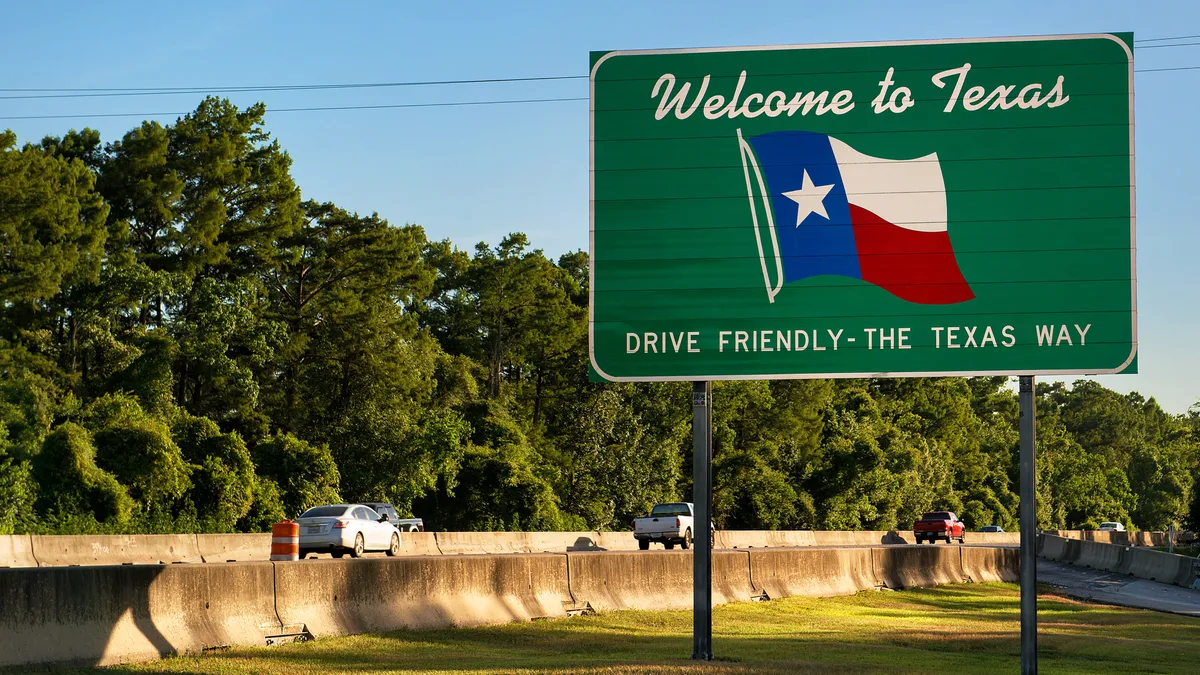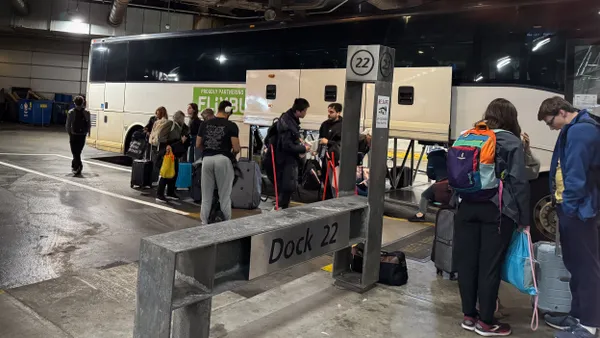Dive Brief:
- The U.S. District Court for the Northern District of Texas on Wednesday vacated a U.S. Department of Transportation rule that ordered state transportation departments and metropolitan planning organizations to establish carbon dioxide emissions reduction targets on the National Highway System, which includes interstate highways, major roads and those considered essential to the military.
- District Court Judge James Wesley Hendrix found that the DOT did not have congressional authority to issue the rule. The ruling came in a lawsuit filed by the state of Texas.
- In a separate lawsuit a group of 21 states filed in Kentucky, the Federal Highway Administration agreed to extend the deadline for states to submit initial CO2 targets and reports until March 29, 2024.
Dive Insight:
The federal greenhouse gas performance measure went into effect Nov. 22, 2023, quickly meeting opposition from many state attorneys general and some members of Congress.
In a Thursday joint statement from House Transportation and Infrastructure Committee Chairman Sam Graves, R-Mo., and Highways and Transit Subcommittee Chairman Rick Crawford, R-Ark., the two commended the Texas judge’s decision. “Congress rejected the inclusion of a GHG performance measure requirement when the infrastructure law was developed, making the Administration’s rulemaking an unlawful attempt to circumvent Congress and force this one-size-fits-all burden upon every state and community across the country,” Graves and Crawford said.
Some advocates for rural interests opposed the rule as well. During a subcommittee hearing of the House Transportation and Infrastructure Committee on March 21, Scott VanderWal, vice president of the American Farm Bureau Federation, said, “Adding more bureaucracy and red tape to the highway planning process will limit long-term success and put rural Americans at a disadvantage.”
But Steven Higashide, director of the Clean Transportation Program at the Union of Concerned Scientists, said in an email, “The common-sense rule they are objecting to helps policymakers and the public understand how infrastructure investments impact the climate. It adds basic transparency to transportation planning processes that can be hard to understand, and it's disheartening to see any states fight to make the process more opaque.”
The District of Columbia and 24 states already follow the DOT’s CO2 emissions rule.












